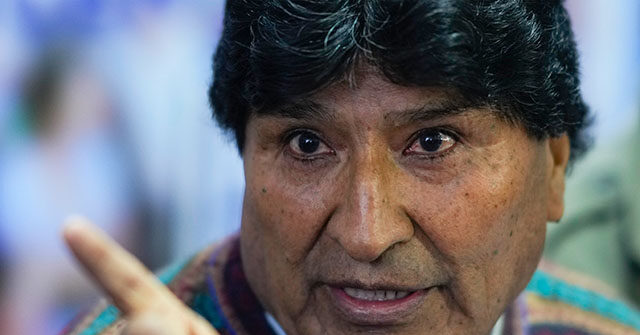In Bolivia, the economy is facing crippling losses amounting to over $1.35 billion as a result of widespread road blockades initiated by supporters of former president Evo Morales. These blockades have occurred amidst growing tensions surrounding accusations against Morales, who is currently embroiled in a legal investigation for alleged involvement in statutory rape and human trafficking during his presidency. Over two weeks, loyalists have set up 24 blockade points across major inter-regional roads, particularly in Cochabamba, Morales’ political stronghold. Rural Development Minister Juan Yamil highlighted the devastating impact on key agricultural sectors such as bananas, poultry, pineapples, soybeans, and sugar cane, indicating that these losses only reflect the damage to the productive sector.
The humanitarian crisis resulting from the blockades is dire; truckers report a state of desperation due to severe shortages of essentials like food and water. As transportation of necessary supplies, including food and medicine, comes to a halt, the economic rhythm of Bolivia is disrupted. The Chamber of Commerce in Santa Cruz has warned that ongoing protests could lead the country towards “collapse,” emphasizing the failure of normal economic activities and hampering residents’ livelihoods. The situation starkly demonstrates how political disputes can result in widespread socio-economic instability, affecting the daily lives of ordinary Bolivians who rely on the transportation of goods.
Law enforcement’s attempts to dismantle these blockades have led to violent confrontations, with protesters using stones and explosives against police officers. A significant clash occurred in Mairana, resulting in multiple injuries among law enforcement, including severe cases that required helicopter evacuations. Pro-Morales factions reportedly attacked a police station and blocked ambulances from reaching injured officers, showcasing the volatile nature of the protests. Such violence not only raises serious concerns regarding public safety but also highlights the tensions inherent in Bolivia’s ongoing political strife.
In a broader political context, the blockades represent a deeper power struggle within Bolivia between Morales and his former protégé, President Luis Arce, over control of the ruling Movement Towards Socialism (MAS) party. Morales, despite his term limitations, is reportedly aiming for a fifth presidential term in the upcoming elections, which further exacerbates the political tension. His claims of a plot against him, alleging that his vehicle was shot at during a recent incident, have been met with skepticism by government officials who claim he is fabricating stories to garner sympathy. These events unfold against a backdrop of potential criminal charges against him, making the already precarious political environment even more chaotic.
The Bolivian government has publicly denounced Morales’s actions, branding the ongoing blockades as a “criminal attack” on the nation’s economy. The National Autonomy Council emphasized the detrimental effects the protests have on fundamental aspects of life, including access to healthcare, essential goods, and stable transportation systems. The economic consequences, particularly surges in food prices, have fueled public outrage and economic hardship across different regions, which are experiencing the brunt of these disruptions.
Underlying these events is an unsettling personal scandal involving Morales himself. Federal prosecutors are investigating claims related to a sexual relationship he reportedly had with a minor, which has resurfaced amid the current political crisis. The relationship details, including the unsolved status of the woman and her child, raise serious ethical and legal questions regarding Morales’s past actions. As the situation evolves, it remains crucial to monitor Morales’s influence and the escalating discontent among Bolivians as they navigate through these tumultuous political waters focused on leadership and accountability amidst human rights allegations. The interplay of personal scandals and political strife in Bolivia paints a complex picture of a nation grappling with governance issues, economic instability, and societal unrest.

